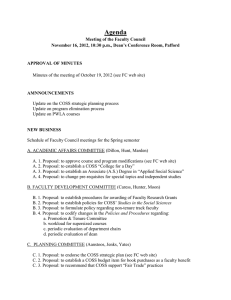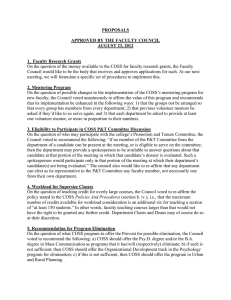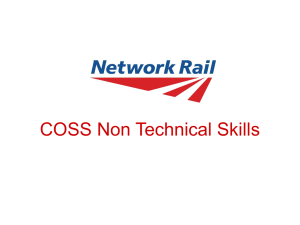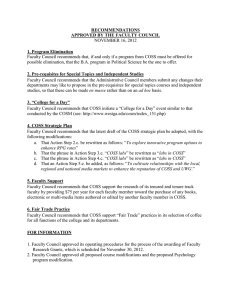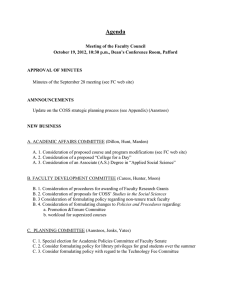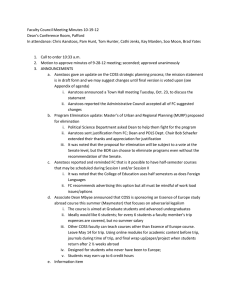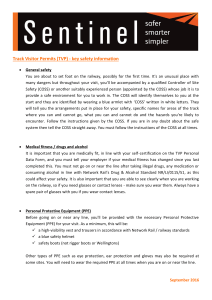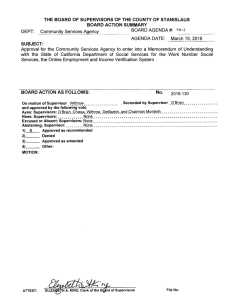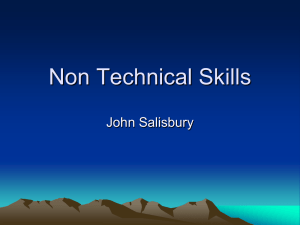COSS NTS Briefing for COSS (PPT 5.00 MB)
advertisement
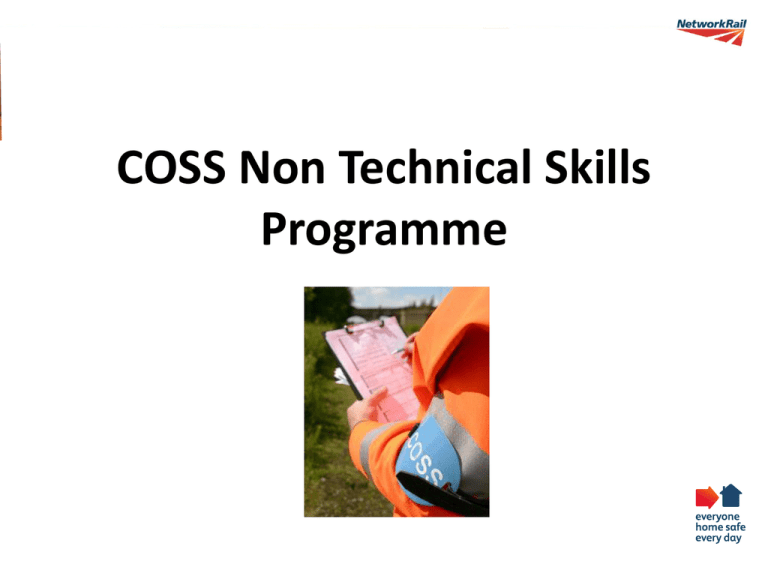
COSS Non Technical Skills Programme What can this programme offer you? • Practical skills to help you do your job • Communications skills for better conversations and briefings • Practice strategies to handle challenging situations • Learn more about the leadership aspects of role • Reflect on strengths & development needs Some real incidents that led to the creation of this programme… Stoats Nest 2011 A COSS had left the work group believing that a request to pick up kit had been made by their line manager. The line was handed back without the COSS being with the group who continued work, unaware the line was now open. A member of the group was stuck and injured by a passing train, they all narrowly escaped death Ruscombe 2007 A COSS was stood behind a Welder on an open line with the lookout stood next to the COSS. The lookout called for an approaching train, but the Welder continued to work, believing it would not be routed their way. The COSS didn’t challenge the Welder’s assumption and they all stayed in position. The Welder was struck and killed, with the COSS and lookout narrowly escaping death. Trafford Park 2005 A group of experienced track workers went out inspecting equipment. One signed in and wore the COSS armband, but no SSOW was planned or discussed. The group were pre-occupied with the technical task and by a phone call and did not notice an approaching train. One worker was struck and killed, with the others narrowly escaping death. In most incidents, the COSS knows the rules and what to do, but other factors or distractions can stop them doing the right thing. Non-Technical Skills (NTS) are skills that that can be developed to help a COSS take the right action and manage mistakes. What Are NTS? • Support the way you apply technical knowledge • • Influence the way you do your job • • Skills needed for good, safe job performance • • Can be learned • Technical Knowledge Experience NonTechnical Skill (NTS) Attitudes & behaviours Competent Performance Non-Technical Skills Development Day 2 Specialist trainers Strengths & development needs Practice strategies to perform better Relevant to COSS role Leadership Taking responsibility COSS Assessment of NTS New ways of thinking and working 1 Day’s training The ability to challenge Communicating to stand your ground Skills needed to be an effective COSS Want to find out more? • Ask your line manager if you would like to be one of the first to take part • Visit http://www.safety.networkrail.co.uk for more details
